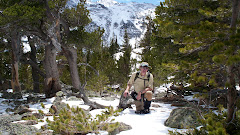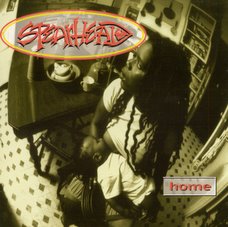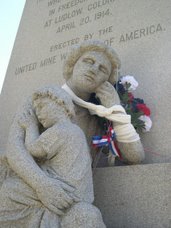
While I certainly believe we should all be outraged and demonstrate that outrage in resistance, I don’t believe we can resort to the same actions of the oppressors. Violence may seem a viable option to many of us but what have we gained if we resort to violence? We’ve basically made our case for peace and justice invalid if that’s the path we choose.
Resistance doesn’t mean a passive approach, however. We need to get in the way of the oppression. As we approach Martin Luther King’s day of commemoration we need to recall the actions of the civil rights workers were risky and proactive. I think we must recall such actions and the words of Martin:
“Massive civil disobedience is a strategy for social change which is at least as forceful as an ambulance with its siren on full. In the past ten years, nonviolent civil disobedience has made a great deal of history, especially in the Southern United States. When we and the Southern Christian Leadership Conference went to Birmingham, Alabama in 1963, we had decided to take action on the matter of integrated public accommodations. We went knowing that the Civil Rights Commission had written powerful documents calling for change, calling for the very rights we were demanding. But nobody did anything about the Commission's report. Nothing was done until we acted on these very issues, and demonstrated before the court of world opinion the urgent need for change. It was the same story with voting rights. The Civil Rights Commission, three years before we went to Selma, had recommended the changes we started marching for, but nothing was done until, in 1965, we created a crisis the nation couldn't ignore. Without violence, we totally disrupted the system, the life style of Birmingham, and then of Selma, with their unjust and unconstitutional laws. Our Birmingham struggle came to its dramatic climax when some 3,500 demonstrators virtually filled every jail in that city and surrounding communities and some 4,000 more continued to march and demonstrate nonviolently. The city knew then in terms that were crystal-clear that Birmingham could no longer continue to function until the demands of the Negro community were met. The same kind of dramatic crisis was created in Selma two years later. The result on the national scene was the Civil Rights Bill and the Voting Rights Act, as President and Congress responded to the drama and the creative tension generated by the carefully planned demonstrations.”
Trumpet of Conscience; 1967 – Martin Luther King
We must remember that the civil disobedience enacted by Dr. King and his supporters often resulted in violent reactions by those opposing them. Each time they took to the streets there was a chance of violence and even death. Yet they still continued because they knew they were on the moral high ground.
When Martin spoke out against the Vietnam War I failed to realize how profound his words were. I failed to heed his warning and ended up in Vietnam a year later. I came to realize his voice was one of the few sincere voices of American leaders that truly cared for not only American troops, but the Vietnamese civilians and troops as well. He cared for the awful waste of humanity being carried out in the name of freedom. He saw the need to challenge the lies of a government falsely using concepts of peace and justice to justify murderous acts of aggression and imperialism.
The same words spoken at the Riverside Church on April 4, 1967 are just as valid and uncannily pertinent today as they were in 1967 when Dr. King spoke out against the war in Vietnam.
“A time comes when silence is betrayal. That time has come for us in relation to Vietnam.
The truth of these words is beyond doubt, but the mission to which they call us is a most difficult one. Even when pressed by the demands of inner truth, men do not easily assume the task of opposing their government's policy, especially in time of war. Nor does the human spirit move without great difficulty against all the apathy of conformist thought within one's own bosom and in the surrounding world. Moreover, when the issues at hand seem as perplexing as they often do in the case of this dreadful conflict, we are always on the verge of being mesmerized by uncertainty. But we must move on. “……….
“I am convinced that if we are to get on the right side of the world revolution, we as a nation must undergo a radical revolution of values. We must rapidly begin the shift from a "thing-oriented" society to a "person-oriented" society. When machines and computers, profit motives and property rights are considered more important than people, the giant triplets of racism, materialism, and militarism are incapable of being conquered.
A true revolution of values will soon cause us to question the fairness and justice of many of our past and present policies. n the one hand we are called to play the good Samaritan on life's roadside; but that will be only an initial act. One day we must come to see that the whole Jericho road must be transformed so that men and women will not be constantly beaten and robbed as they make their journey on life's highway. True compassion is more than flinging a coin to a beggar; it is not haphazard and superficial. It comes to see that an edifice which produces beggars needs restructuring. A true revolution of values will soon look uneasily on the glaring contrast of poverty and wealth. With righteous indignation, it will look across the seas and see individual capitalists of the West investing huge sums of money in Asia, Africa and South America, only to take the profits out with no concern for the social betterment of the countries, and say: "This is not just." It will look at our alliance with the landed gentry of Latin America and say: "This is not just." The Western arrogance of feeling that it has everything to teach others and nothing to learn from them is not just. A true revolution of values will lay hands on the world order and say of war: "This way of settling differences is not just." This business of burning human beings with napalm, of filling our nation's homes with orphans and widows, of injecting poisonous drugs of hate into veins of people normally humane, of sending men home from dark and bloody battlefields physically handicapped and psychologically deranged, cannot be reconciled with wisdom, justice and love. A nation that continues year after year to spend more money on military defense than on programs of social uplift is approaching spiritual death.
America, the richest and most powerful nation in the world, can well lead the way in this revolution of values. There is nothing, except a tragic death wish, to prevent us from reordering our priorities, so that the pursuit of peace will take precedence over the pursuit of war. There is nothing to keep us from molding a recalcitrant status quo with bruised hands until we have fashioned it into a brotherhood. “
Not only are the words Dr. King spoke as relevant today as in 1967, so too are the actions of civil disobedience just as relevant. I believe we must stop playing it “safe” with the cooperative demonstrations of disobedience in which the forces of oppression are included and begin to seize the opportunities to demonstrate moral civil disobedience wherever they are necessary. Doing so will mean taking risks of upsetting our style of living. Doing so will mean chancing violent reactions of the oppressive forces that seek to destroy dissent and the freedoms we still have.
The dogs and fire hoses have never left us. They only change form and become secret imprisonments, water-boarding and intimidating visits by the forces of “homeland security”. The homeland has become far too much like the “fatherland” of other tyrants in the not so distant past.
If not now, when? If not enough, when? When is the time to stop the tyranny? When is oppression enough to make us act in the necessary ways to end it?













No comments:
Post a Comment